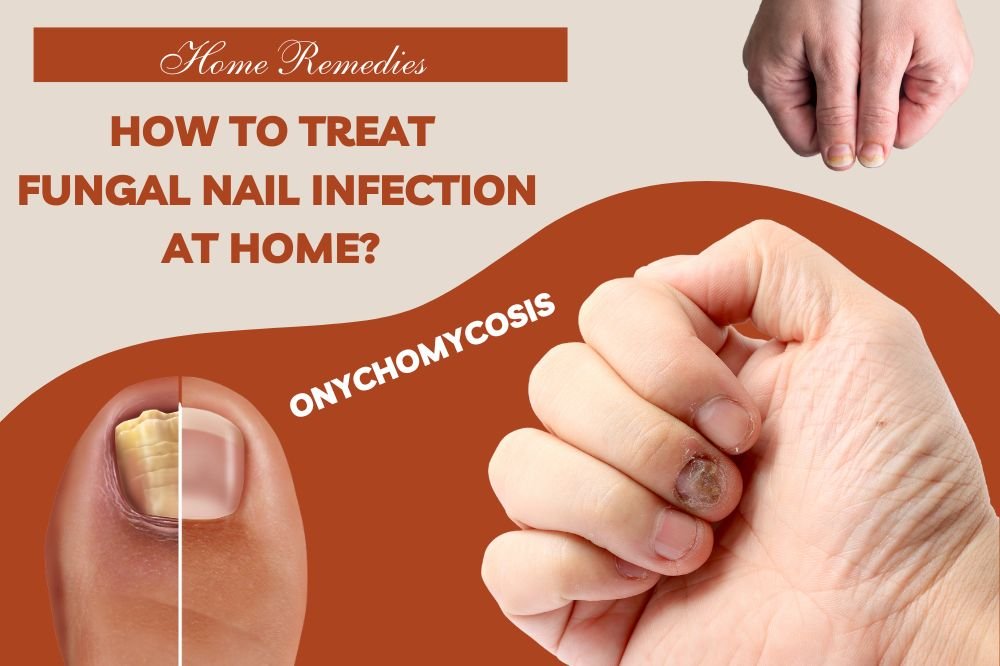How to Treat Fungal Nail Infection at Home

How to Treat Fungal Nail Infection at Home
Fungal nail infection, also known as onychomycosis, is a common condition that affects millions of people worldwide. It can cause discoloration, thickening, and splitting of the nails, and in severe cases, it can lead to pain and difficulty walking. While there are several treatment options available for fungal nail infections, some people prefer to treat them at home. In this article, we will discuss how to treat fungal nail infections at home, including natural remedies, over-the-counter medications, and lifestyle changes.
What is a Fungal Nail Infection?
Before we delve into the treatment options for fungal nail infections, it’s essential to understand what they are. Fungal nail infections occur when a fungus, such as dermatophytes, invades the nails, causing them to become thick, discolored, and brittle. The infection can occur in one or more nails and can spread to other nails or areas of the body.
Symptoms of a Fungal Nail Infection
The symptoms of a fungal nail infection can vary depending on the severity of the infection. Common symptoms include:
- Thickened nails
- Discolored nails (yellow, brown, or white)
- Brittle or crumbly nails
- Distorted shape
- Foul odor
- Separation of the nail from the nail bed
- Pain or discomfort
Natural Remedies for Fungal Nail Infections
Several natural remedies may help treat fungal nail infections at home. These remedies are often effective, affordable, and safe. However, it’s essential to note that they may take longer to work than prescription medications.
Tea Tree Oil
Tea tree oil is a natural antifungal and antiseptic that may help treat fungal nail infections. To use tea tree oil, mix a few drops with a carrier oil, such as coconut oil, and apply it to the affected nails twice a day.
Apple Cider Vinegar
Apple cider vinegar is an acidic substance that may help kill the fungus that causes nail infections. To use apple cider vinegar, mix equal parts vinegar and water and soak the affected nails for 30 minutes a day.
Baking Soda
Baking soda is an alkaline substance that may help prevent the growth of fungi. To use baking soda, mix it with water to form a paste and apply it to the affected nails twice a day.
Over-the-Counter Medications for Fungal Nail Infections
If natural remedies do not work, there are several over-the-counter medications that may help treat fungal nail infections. These medications are often available at drug stores and do not require a prescription.
Topical Antifungal Creams
Topical antifungal creams, such as clotrimazole and terbinafine, may help treat fungal nail infections. To use these creams, apply a thin layer to the affected nails twice a day for several weeks.
Antifungal Nail Polish
Antifungal nail polish contains an antifungal agent that may help treat fungal nail infections. To use this polish, apply it to the affected nails once a day and remove it with nail polish remover once a week.
Antifungal Nail Gels
Antifungal nail gels, such as ciclopirox, may help treat fungal nail infections. To use these gels, apply a thin layer to the affected nails once a day for several weeks.
Lifestyle Changes for Fungal Nail Infections
In addition to natural remedies and over-the-counter medications, there are several lifestyle changes that may help treat fungal nail infections.
Keep Nails Clean and Dry
Keeping your nails clean and dry can help prevent the growth of fungi. To keep your nails clean, wash them with soap and water regularly.
Wear Breathable Shoes and Socks
Wearing breathable shoes and socks can help prevent moisture buildup, which can lead to fungal nail infections. Choose shoes made of breathable materials, such as leather or canvas, and wear socks made of natural fibers, such as cotton or wool.
Trim Nails Properly
Trimming your nails properly can help prevent fungal nail infections. Use a clean, sharp nail clipper to trim your nails straight across and avoid cutting them too short or too close to the skin.
Avoid Nail Trauma
Avoiding nail trauma, such as cuts or bruises, can help prevent fungal nail infections. Wear protective shoes when engaging in activities that may cause nail trauma, such as sports or heavy labor.
Conclusion
Fungal nail infections can be a frustrating and uncomfortable condition, but there are several treatment options available. Natural remedies, over-the-counter medications, and lifestyle changes can all help treat fungal nail infections at home. If your symptoms persist or worsen, it’s essential to seek medical attention from a healthcare professional.
FAQs
Can fungal nail infections go away on their own?
Fungal nail infections may not go away on their own and can worsen over time without treatment.
How long does it take to treat a fungal nail infection?
It can take several weeks or months to treat a fungal nail infection, depending on the severity of the infection and the chosen treatment.
Can I still wear nail polish if I have a fungal nail infection?
It’s best to avoid wearing nail polish if you have a fungal nail infection, as it can trap moisture and worsen the infection.
Are there any side effects to using over-the-counter antifungal medications?
Over-the-counter antifungal medications may cause side effects, such as skin irritation or allergic reactions. Consult with a healthcare professional before using these medications.
How can I prevent fungal nail infections from recurring?
To prevent fungal nail infections from recurring, maintain good nail hygiene, wear breathable shoes and socks.
You Might be Interested In…
- Make Your Hands Soft, Smooth and Beautiful
- Treatments of Hyper-Pigmentation
- Get Fair and Glowing Skin at Home
- Get Your Lips Pink and Rosy
- How to Remove Nail Polish Easily
- Remove Ring From Swollen Finger
- Toothache Causes Symptoms & Treatments
- How to Make Teeth White Easy Tips
- Make Smile Attractive with Healthy Teeth
- Teeth Cavity Causes Symptoms & Treatments
- Fractured Tooth Causes, Symptoms & Treatments
- Home Remedies for Dry and Cracked Heels


You May Also Like

How to Make Teeth White | Teeth Whitening Strips
12/09/2022
Rosewater as a Natural Toner & Refreshing Facial Mist
27/05/2023